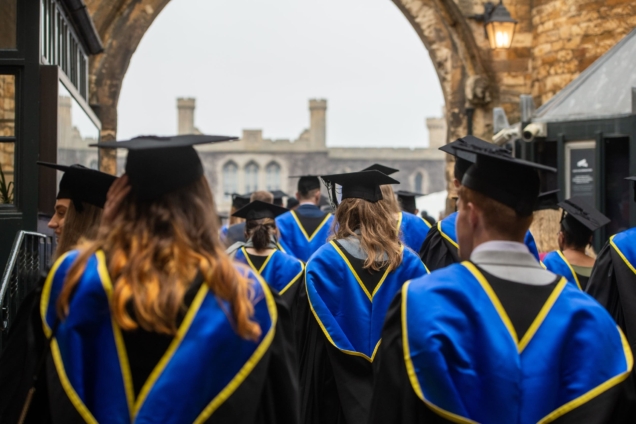Published
8 months agoon
By
Adubianews
For many Ghanaian PhD students in the UK, the dream of academic excellence has become a nightmare. Stipends unpaid for up to 36 months, mounting debt, and emotional exhaustion have pushed students to the brink, and now the situation is attracting diplomatic attention.
President of the Ghana PhD Cohort, Prince Bansah, described the crisis as heartbreaking and worsening by the day. “The reality on the ground is far more egregious than those snippets suggest; our colleagues have suffered beyond what words can capture.”
He revealed that some students have gone three full years without receiving a single stipend, while many universities are yet to receive any tuition payments from the Ghana Scholarship Secretariat.
According to Bansah, the new registrar visited the UK in May following pressure from protesting students and promised to begin clearing debts. He reportedly assured students that stipends would resume by the end of May, starting with a partial repayment agreement at the University of Birmingham.
But Bansah said the situation has since stalled, and emails to officials now go unanswered. “We have tried repeatedly to contact officials here, but many students say their emails go unanswered.”
The financial strain has had devastating consequences. “Many students have been evicted and now rely on food banks,” he said. “In the UK, hunger is a solitary battle; you can’t just knock on your neighbour’s door like in Ghana. When you’re sick here, it’s only you and your God.”
Bansah also shared his own health struggles, recounting how he collapsed while writing his thesis, only to be told by a wellbeing officer that his condition was linked to 20 months of unpaid stipends.
“The wellbeing officer informed me this would be escalated to the British Commons. They intended to contact my local Member of Parliament.”
Last week, he received an email from his MP requesting documentation to raise the issue in British Parliament, a move Bansah says highlights the international embarrassment Ghana now faces.
Some students, he added, have already been withdrawn from their programmes, while those who can afford to help have been housing others. “But we cannot sustain support for most colleagues. The crisis is dire.”
He described how male students are resorting to menial labour known as “making ends” just to survive, and feared what female PhD students may be enduring in silence. “If male students are pushed to this, imagine what female students, especially PhDs, endure.”
Bansah stressed that PhD students face unique challenges. Unlike undergraduate or master’s students who have academic breaks and can work legally, PhD candidates work year-round with no breaks and limited job options.
“This morning, I’m in my office writing pages of my thesis, far beyond the 20 hours per week UK visa rules allow. No one wants to hire someone who can only work 20 hours a week,” he added. “This situation is huge and heartbreaking.”
He criticized efforts to politicize the issue, clarifying that the affected students were selected across governments and represent Ghana’s academic future.
“It pains me when people politicise or trivialise this issue. The calibre of students sponsored is well-known, transcending all political divides.”
Bansah ended with a plea for urgent help. “We understand this is a new government, and it’s unfair to fault them for a legacy problem. But we plead for immediate and decisive action.”

























